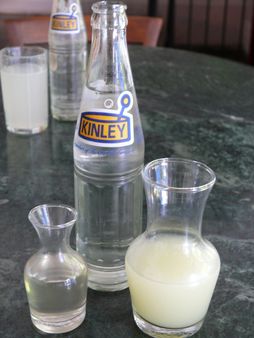How to deal with bloating after eating
There are many people who complain of bloating after eating. This could be due to a health issue, or it could just be due to poor eating habits. There are simple and easy ways to deal with bloating after eating. This article is a guide to dealing with bloating after eating.
What is bloating?
Bloating is the layman's term for abdominal distention. Any type of abdominal swelling is referred to as bloating and it normally occurs due to fluid retention or accumulation of gas in the abdomen. While this condition is rarely serious, it is an extremely uncomfortable feeling. There are many causes of bloating and it is best to consult a GP to understand these causes.
Causes of bloating
Irritable Bowel Syndrome
This condition often leads to flatulence or abdominal pain after eating along with diarrhea. IBS sufferers are advised to eat a high-fibre diet which causes the bloating. Consult your GP to find ways to reduce bloating and flatulence after eating.
Constipation bloating
One of the most common causes of bloating is constipation. This occurs due to low intake of fluids leading to a sedentary life or not consuming enough fibrous food during mealtimes. Increasing water intake, doing regular exercise and eating high-fibre food can ease constipation and resultant bloating. Ironically, though high-fibre food can ease constipation, at the same time it can also lead to flatulence and abdominal bloating.
Premenstrual syndrome
Women often complain of bloating and water retention a few days before the onset of menstruation. Bloating associated with PMS can be reduced by limiting salt intake and doing regular exercise.
Tips to deal with bloating after eating
While eating, make sure that you are seated in an upright position. This will facilitate the movement of food from the stomach to the intestines.
Avoid movements that press the stomach inwards as this will prevent passage of food to the intestines. If food stays too long in the stomach, it begins to ferment and cause flatulence.
Chew your food properly and slowly. When food is chewed into small particles, the stomach does not have to work hard to digest it. This, in turn, will cause the food to move faster from the stomach into the intestines and prevent bloating after eating. When you eat fast, you also swallow air that can leave you feeling bloated after eating.
Avoid drinking water during mealtimes or immediately after meals as it will dilute the stomach acids and delay digestion. It is advisable to drink water about 20 to 40 minutes after a meal.
If you are feeling extremely uncomfortable and you are experiencing abdominal distention, try drinking some carbonated water. The carbon dioxide in the water will reduce bloating by making you belch.

